
Subscribe to our mailing list.
All Blog Posts With Tag: Friedrich Schleiermacher
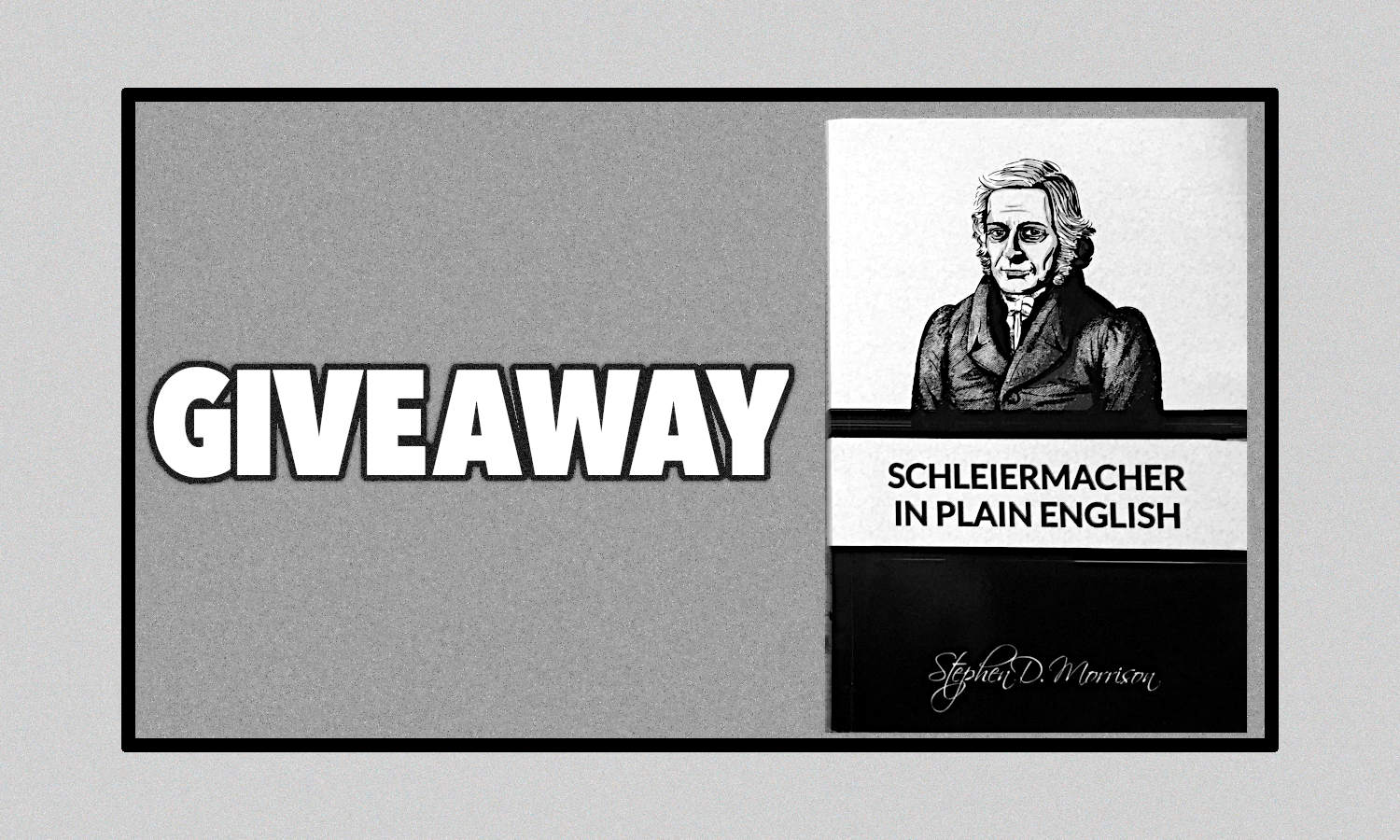
Update: June 7th, 2019: The Contest is now over. Congratulations to Nathan Jennings for winning! For a limited time, an ebook of "Schleiermacher In Plain English" may be purchased for 25% off by using the code "postbarthian" at http://www.sdmorrison.org/store/
The PostBarthian book giveaway has now started! We are giving away Stephen […]
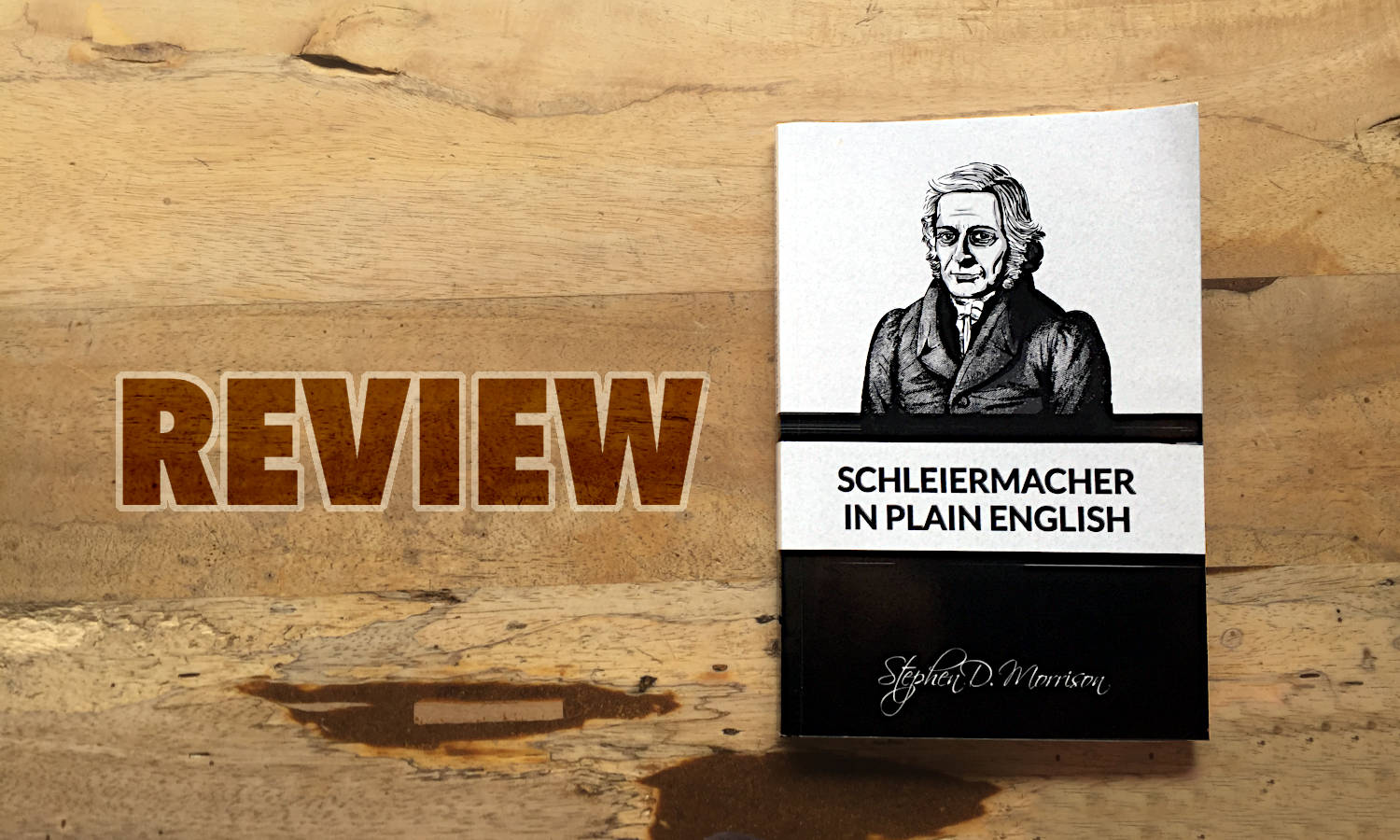
I've been fascinated with Friedrich Schleiermacher (1768—1834) for a decade, and was introduced to him through Karl Barth's criticisms of him that caused me to believe Schleiermacher was Barth's vanquished foe. Apart from Barth, I had read many condemnations of Schleiermacher as the heresiarch of Protestant Liberalism horrifically exemplified by […]
Q Source (feat. Raymond E. Brown) (May 23, 2019)

What is Q?
Q Document (or Q) refers to a common source used by the gospels of Matthew and Luke independently, and may be reconstructed by the agreements between the Greek sources of Matthew and Luke. ("Q" coined by J. Weiss in 1880 and Q is an abbreviation for the German word […]
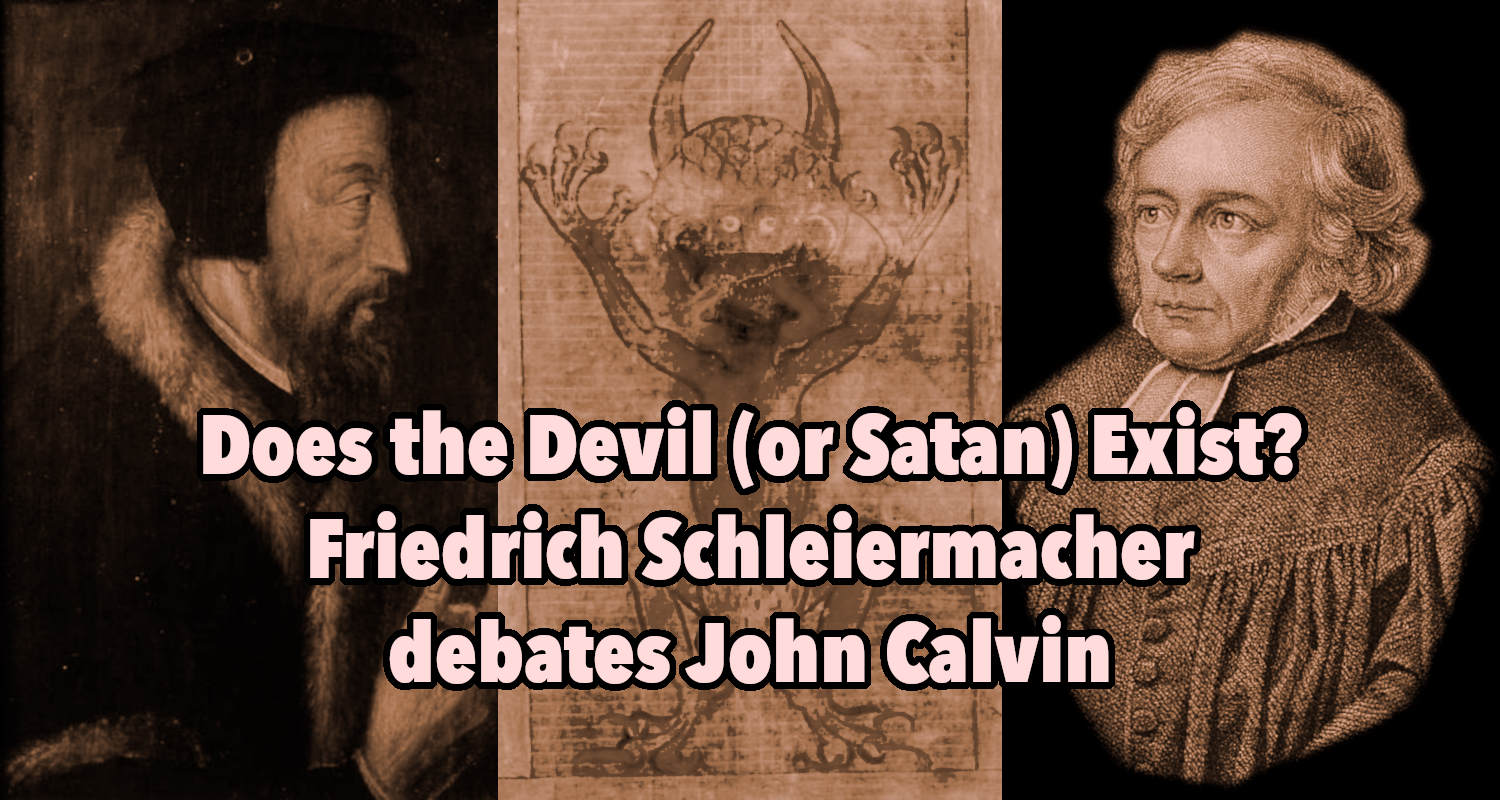
John Calvin's proof for existence of Satan
In the Institutes of the Christian Religion I.14.17, John Calvin argues that the devil (or satan) and demons must exist in the world, because there must exist an agent that mediates between the goodness of god and the evil happenings in the world, such […]
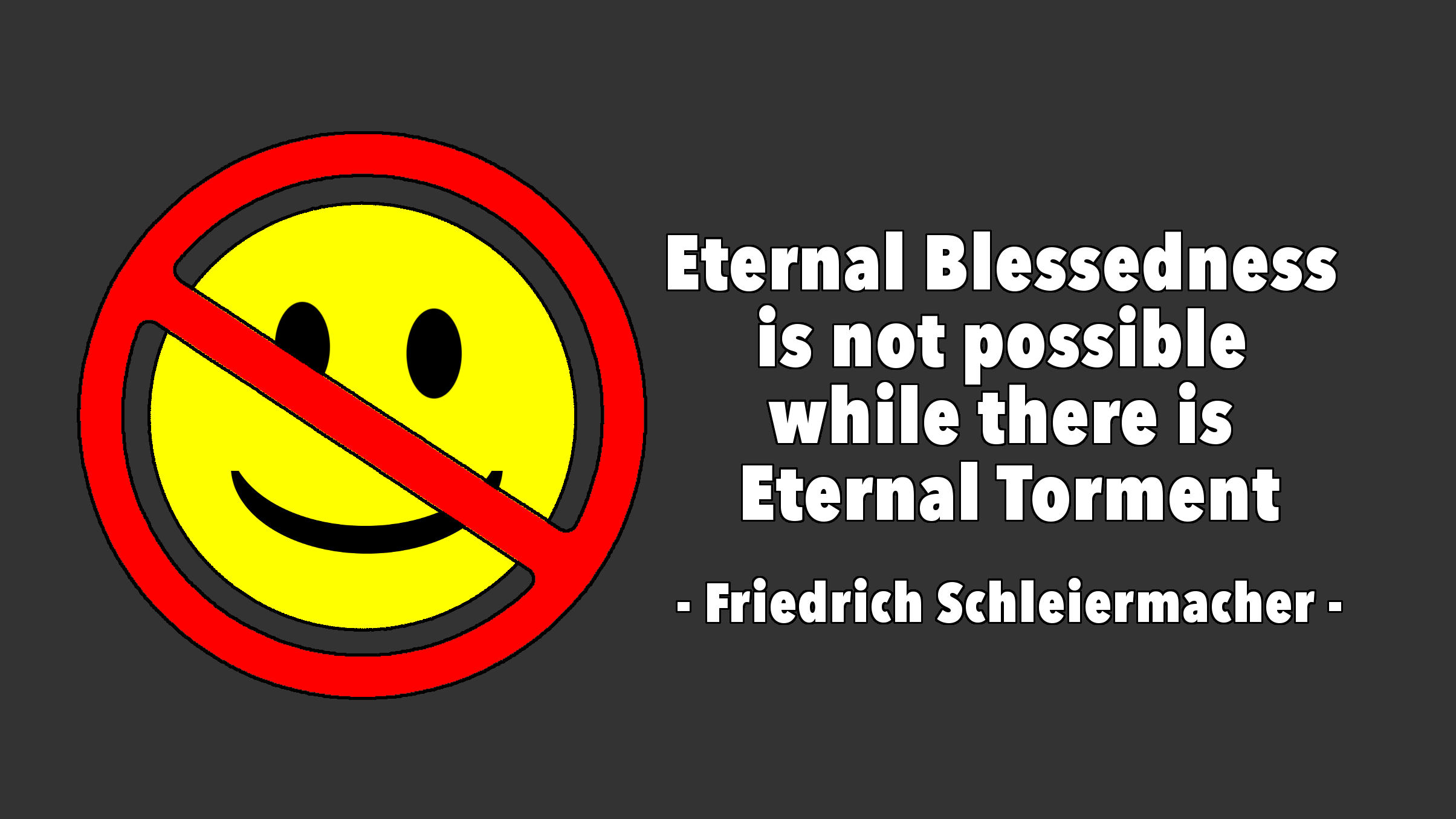
Friedrich Schleiermacher (1768—1834), the father of modern theology and liberal Protestantism was one of the first theologians to write that is it is not possible for people to be eternally blessed (in heaven) when they know that others are in eternal torment (in hell.) Before Schleiermacher theologians throughout church history […]
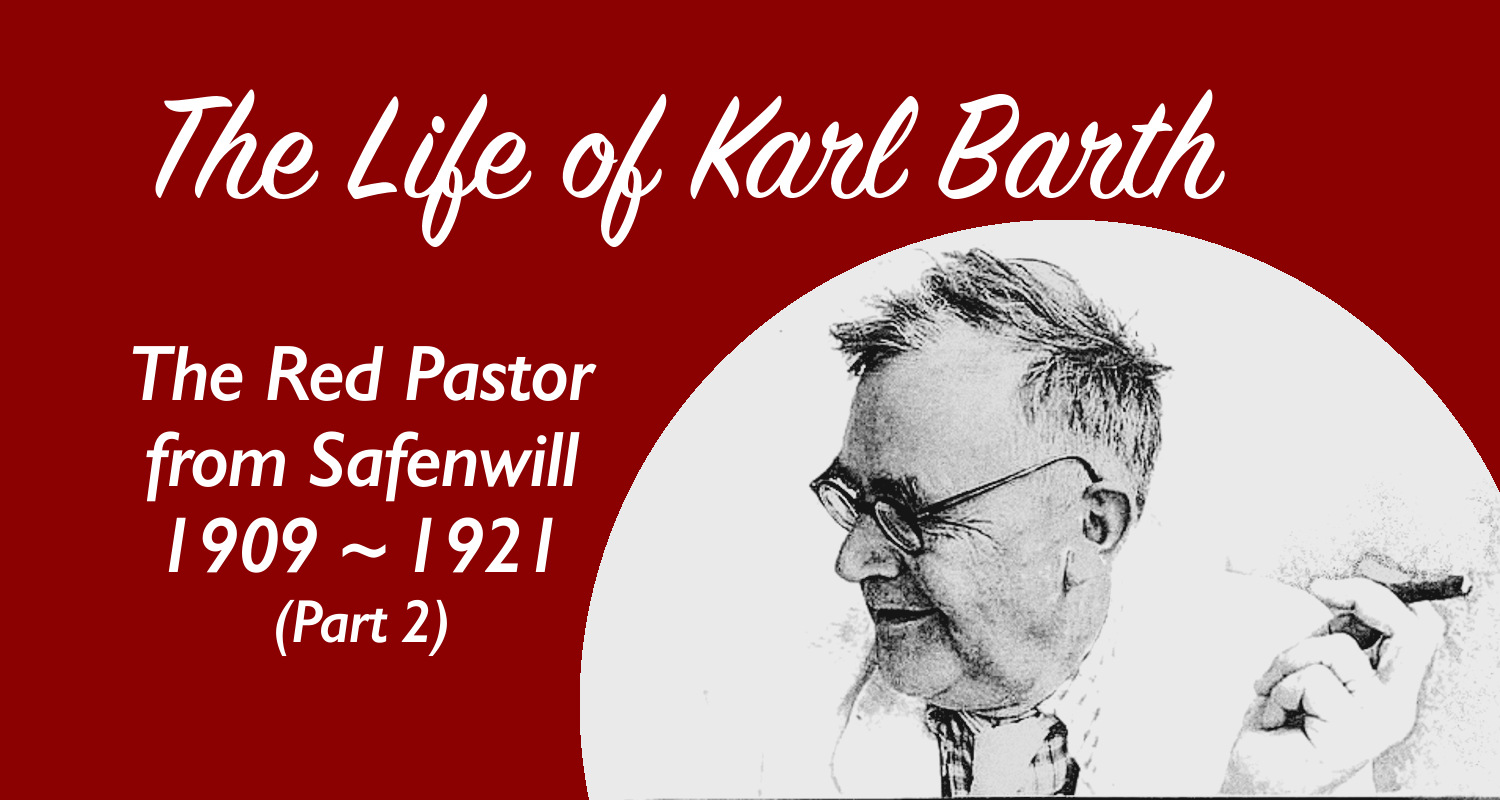
In part one of The Life of Karl Barth series, I discussed Karl Barth's early life from his birth in 1886 until he left the University of Marburg and his pastoral work in Geneva in 1911. In part two, I will discuss the next ten years in Barth's life when […]
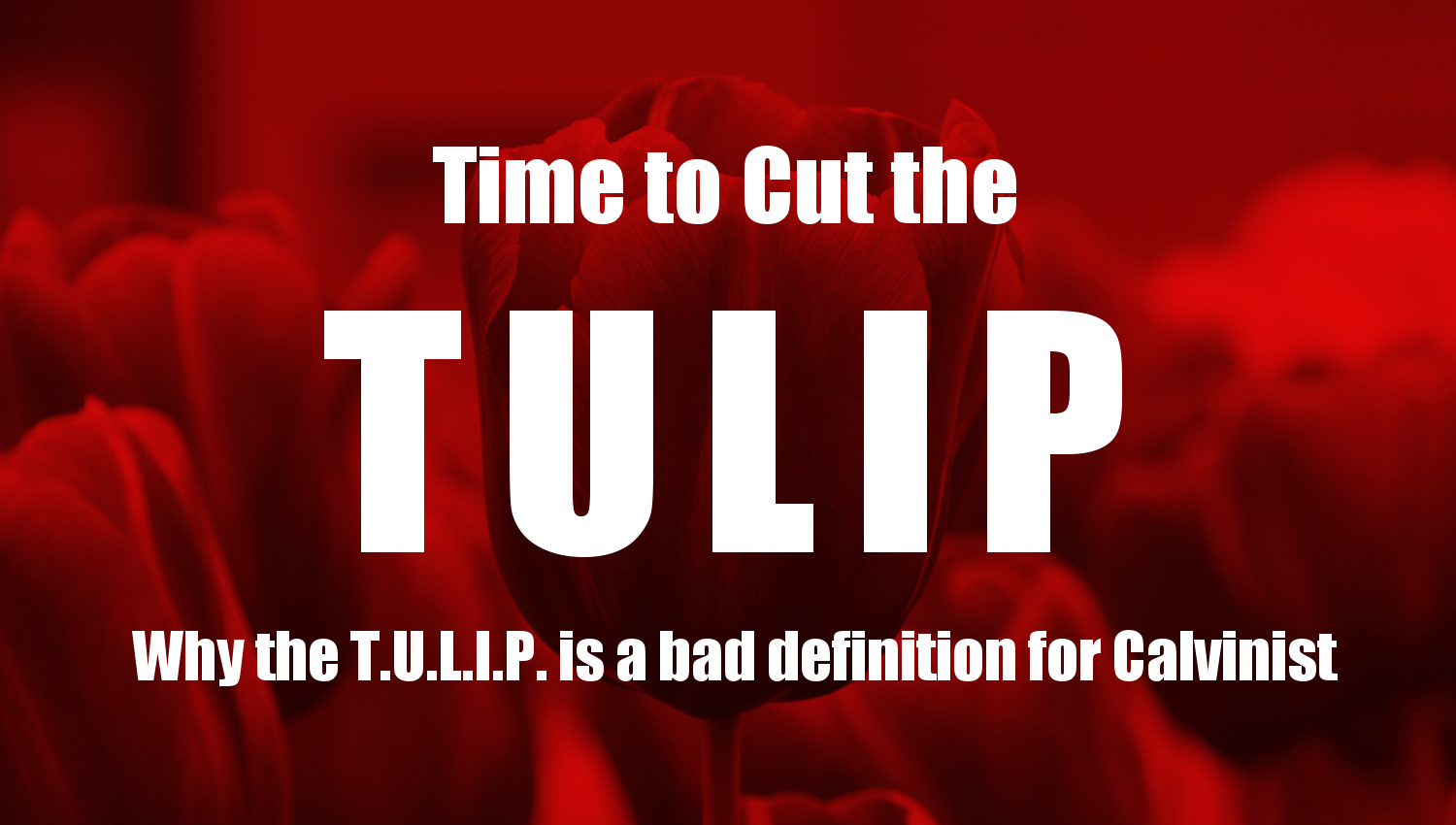
What is a Calvinist? Most American Evangelicals will answer that it is anyone who affirms the T.U.L.I.P. The TULIP is an acrostic for Double Predestination that stands for Total Depravity, Irresistible Grace, Limited Atonement, Unconditional Election, and Perseverance of the Saints—and anyone who affirms all the petals of this TULIP is commonly […]
Friedrich Schleiermacher’s Last Meal (July 7, 2017)
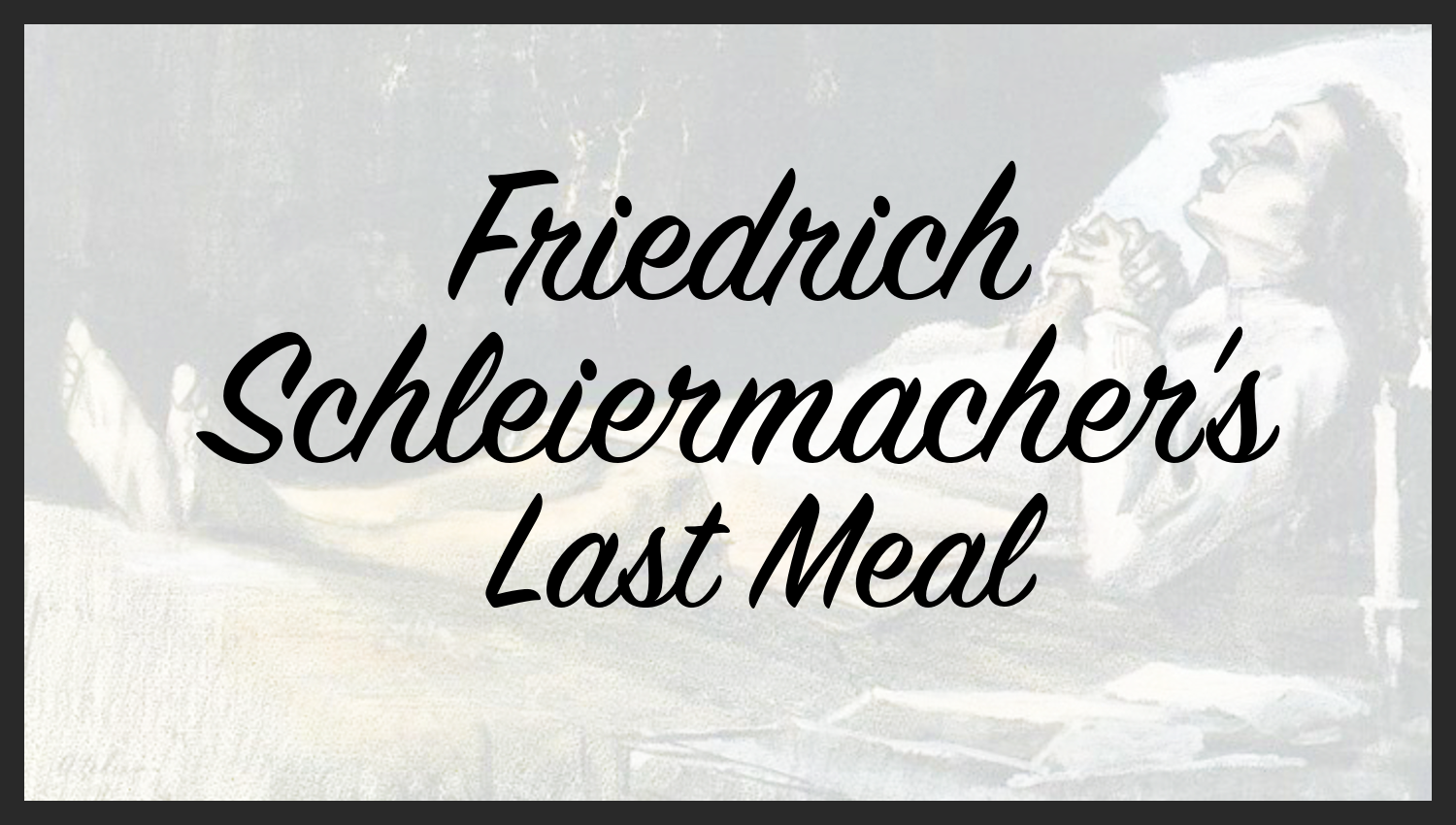
Friedrich Schleiermacher (1768–1834) was a German Protestant theologian and philosopher that is frequently called the "Father of Liberal Protestantism." Schleiermacher is arguably the most influential theologian after John Calvin and before Karl Barth, and his most influential books are On Religion: Speeches to its Cultural Despisers and his systematic theology, The Christian Faith. […]
Schleiermacher’s Distressing Letter To His Father (September 1, 2016)
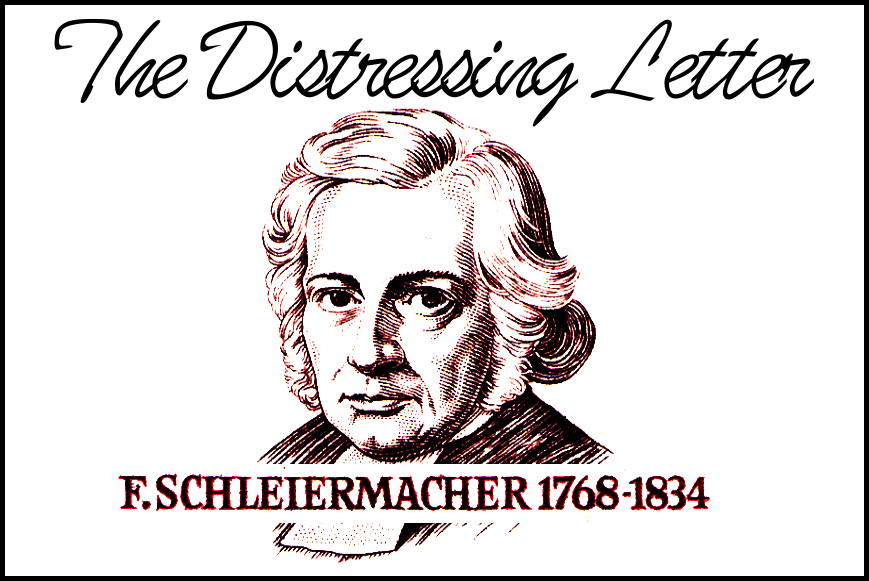
The young Friedrich Schleiermacher wrote a "distressing letter" to his father to confess that he no longer affirmed Christian doctrines that his father believed were necessary to obtain salvation: namely, vicarious atonement and the deity of Jesus Christ. The distressing letter, as Schleiermacher titled it, is an icon of de-conversion, especially […]
Barth vs Bultmann: The Myth of the Whale and the Elephant (June 6, 2015)
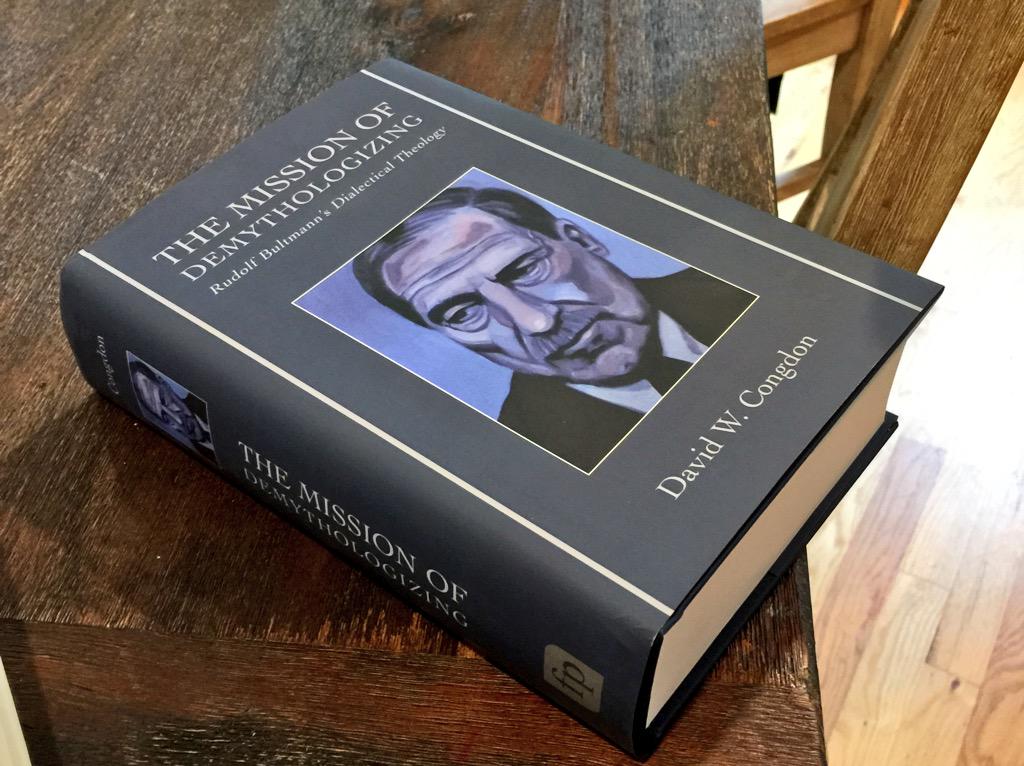
Karl Barth and Rudolf Bultmann were once friends, believe it or not, before theology tore their friendship apart. It is rumored that Karl Barth abandoned his Church Dogmatics due exasperation caused by rising interest in Rudolf Bultmann despite Barth triumphantly overcoming his 'friend-turned-enemy' in his magnum opus. Barth grew exasperated with Bultmann's […]

